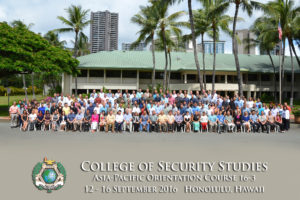
One hundred forty-four U.S. and international Fellows took part in the Sept. 12 to 16 Asia-Pacific Orientation Course 16-3 at the Daniel K. Inouye Asia-Pacific Center for Security Studies.
Gaining fuller knowledge of important factors that drive the Asia-Pacific security environment, 144 U.S. and international Fellows completed a nearly week-long orientation course today at the Daniel K. Inouye Asia-Pacific Center for Security Studies.
Held Sept. 12 to 16, the Asia-Pacific Orientation Course 16-3 comprised 144 U.S. and international Fellows from Australia, Canada, China, Denmark, Indonesia, the Philippines, Republic of Korea Singapore, Taiwan, and Thailand.
APOC is designed to provide an overview of regional states and trends in socio-economic, political, defense, health and environmental arenas. Faculty members address these areas in the context of major sub-regions, such as Northeast Asia, South Asia and Oceania. Attendees are predominantly junior- to mid-grade U.S. military members and their civilian counterparts in various security-related fields, however, the APOC roster includes a small number of international Fellows.
“The course focused on enhancing Fellows’ abilities to contribute to processes necessary for strategic stability, conflict mitigation and mediating impacts of resource scarcity and climate change.” The program also promoted building professional networks among Fellows.
Among topical discussions was “The Geopolitical Landscape of the Asia-Pacific,” led by DKI APCSS faculty member Dr. Mohan Malik. He walked Fellows through shifts in the regional power balance since 2000 based primarily on the evolution of economic and transnational threat factors. Other plenary discussions included topics such as “Maritime Security” by Kerry Lynn Nankivell and “Security Dynamics in Southeast Asia” by Dr. Virginia Bacay Watson.
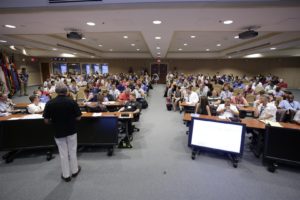
Dr. Al Oehlers, DKI APCSS faculty member, leads the topical discussion “Security Dynamics in Oceana” during the Asia-Pacific Orientation Course 16-3.
“I definitely think the course material and lectures were very informative…very diverse,” said 1st Lt. Nick Henderson, with the 25th Air Support Operations Squadron at Wheeler Army Air Field, Hawaii. “It definitely makes me more informed whenever it’s time to (move people) out to the Asia-Pacific region, I know what to look for.” He added the course provided a valuable source of “reach back.” “If I need more specific information, I can come back to APOC — the instructors, the professors, the Fellows — to get that.”
APOC is one of six formal courses at DKI APCSS. The center is a Department of Defense institute that addresses regional and global security issues. Military and civilian representatives, most from the United States and Asia-Pacific nations, participate in a comprehensive program of executive education, professional exchanges and outreach events, both in Hawaii and throughout the Asia-Pacific region.
The Center supports U.S. Pacific Command by developing and sustaining relationships among security practitioners and national security establishments throughout the region. DKI APCSS’ mission is to build capacities and communities of interest by educating, connecting and empowering security practitioners to advance Asia-Pacific security. It is one of the Department of Defense’s five regional security studies centers.
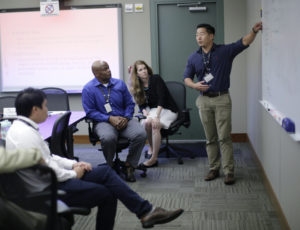
Fellows engage in discussion on issues related to regional security dynamics during an Asia-Pacific Orientation Course 16-3 seminar session at the Daniel K. Inouye Asia-Pacific Center for Security Studies Sept. 12.
Since opening in 1995, more than 10,400 alumni representing over 122 countries and territories have attended DKI APCSS courses and workshops.
For more photos of APOC 16-3, Click Here
-END-



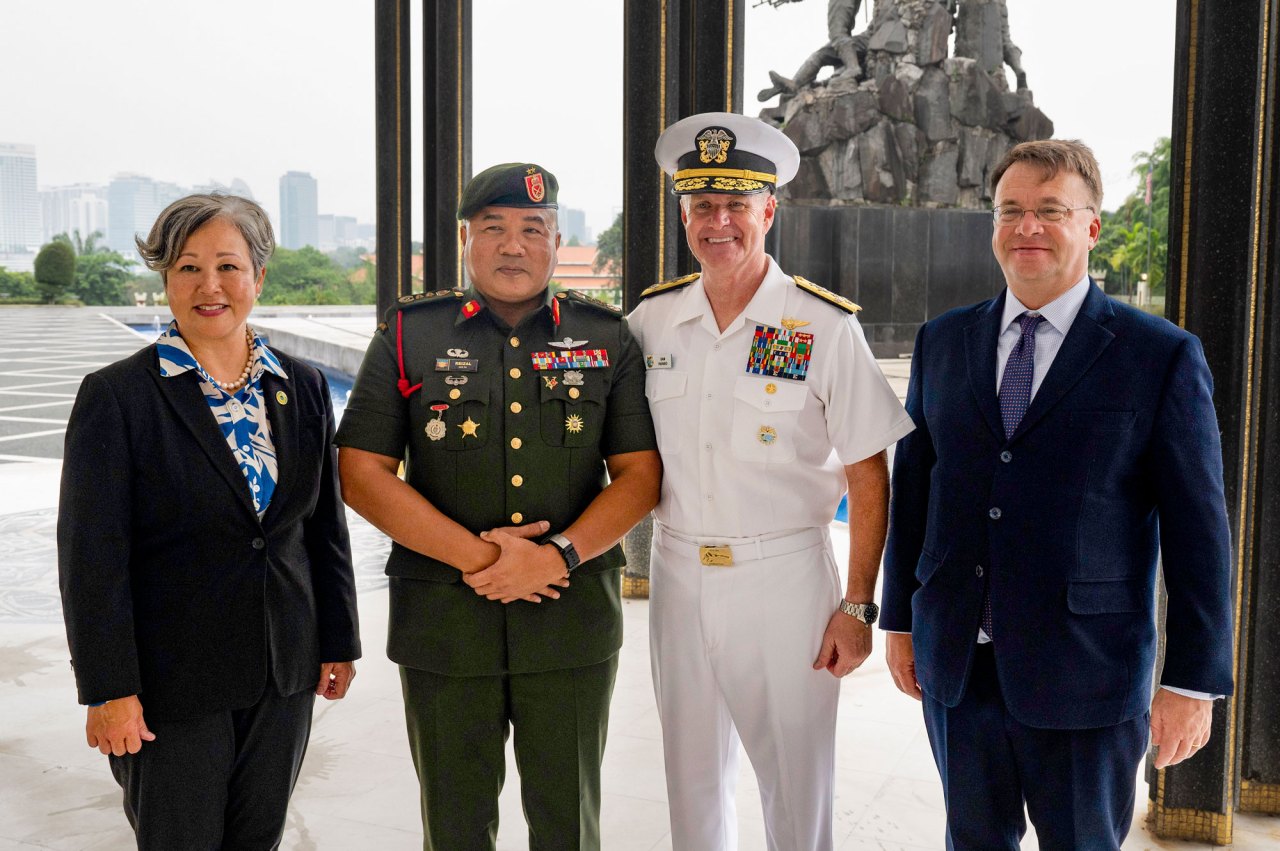

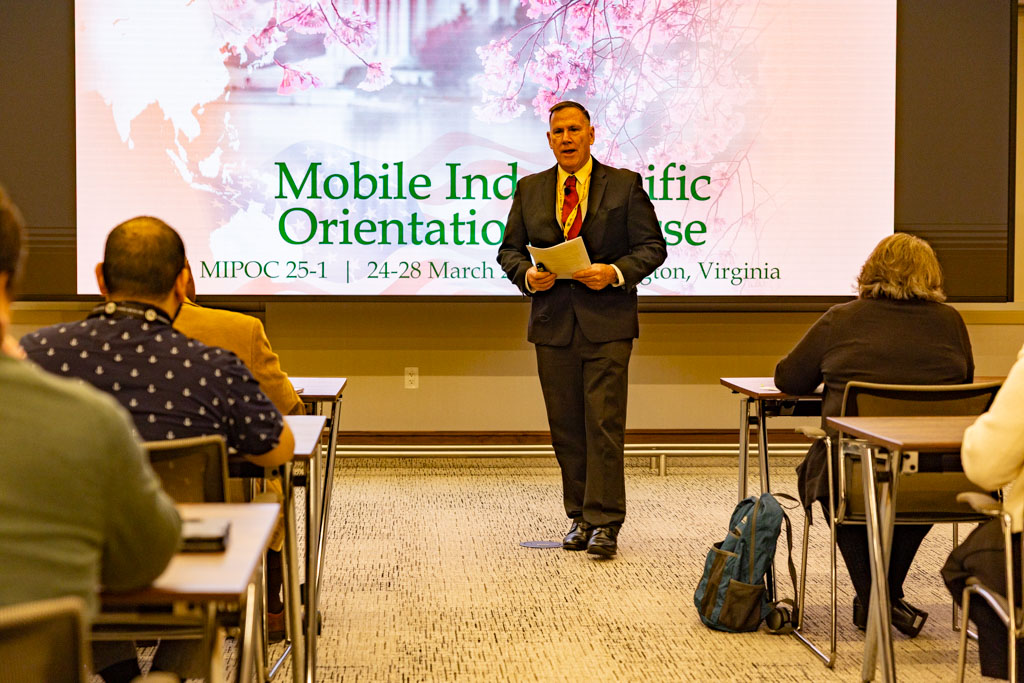




It was a great time, thanks to US government & APCSS to give us this opportunity.The arrangement of course content was excellent & its covers the present day issues face by the region & gain the knowledge on subject matter.Other than educational aspect all other activities organize by the school was make us feel comfortable the stay. Thank u very much for the staff of apcss for ur tremendous efforts to asc 16-2 be a success. Thank you very much.mahalo!